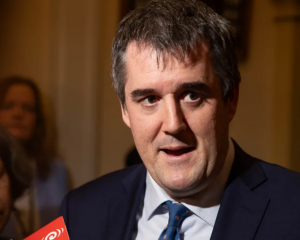Police sought restraints on new powers given to them under the ACT-National three strikes violent crime policy and Treasury recommended against adopting the policy, documents show.
It was revealed last week that Justice Ministry officials warned that the policy risked breaching New Zealand's Bill of Rights and international obligations, went against the Government's own policy on the drivers of crime, and impacted on judicial powers.
It also said some juries might not convict criminals, concerned by the unfair consequences if they did, and that the group worst affected would be Maori.
Under the amended policy, there are certain offences that attract a strike. Under the National Party policy, a strike offence was a violent crime that attracted a minimum five years' jail.
Concerns were raised when the policy change was announced in January that police rather than judges had the power to decide who would get a third strike which carries the penalty of serving a full sentence without parole.
In further papers released to NZPA under the Official Information Act, Police Commissioner Howard Broad wrote in December: "The three strikes legislation is reliant on the effective application of police discretion, following the arrest of an offender, when deciding the appropriate charge for an offence based on the available evidence."
He offered four options and Police Minister Judith Collins has since adopted a recommendation for police to refer all prosecutions to the Crown prosecutor before a third strike charge was laid.
Mrs Collins is writing to the committee considering the Bill to ask it to look at the idea.
The other ideas Mr Broad suggested were for special policy and procedures to be put around third strike charges, a review by senior police before the charge was laid or a legislative change requiring cases to go to the Crown Prosecutor first.
In a subsequent paper to Cabinet, Treasury recommended ministers not agree to the changes.
It said mandatory sentencing polices tended to expand over time and said there was significant uncertainty about how the legislation would be used and urged caution.
"While officials have made an informed attempt to cost the impacts of these changes using simple assumptions the actual costs are likely to be higher and are dependent on complex behavioural responses which have not been analysed due to time constraints."
A regulatory impact analysis in the same Cabinet paper said the policy would benefit victims while impacting the most on Maori because of their over-representation in prisons.
Concerns such as fewer guilty pleas were raised but positives included certainty for offenders and victims and a deterrent effect. It noted the legislation might breach domestic and international human rights obligations.
The Bill was transferred to Ms Collins from Justice Minister Simon Power. Mr Power said last week he was comfortable with the Bill because a judge could decide it was manifestly unfair to impose a three strike sentence, because the Bill was not retrospective, and because it only affected those older than 17.
Ms Collins said the focus was on public safety.
"There has been long discussions between both the Prime Minister and the leader of the ACT Party. This is a very well thought out Bill. I think it's a good Bill."












